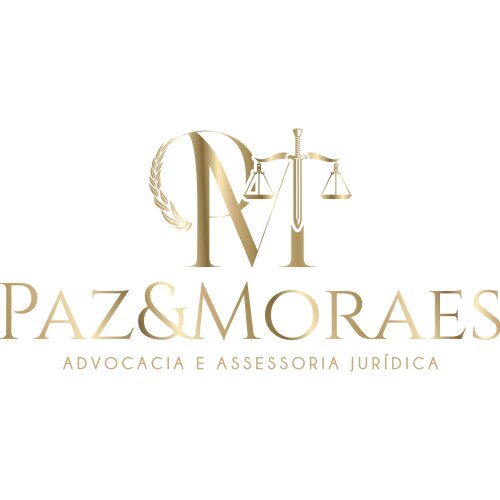Best Faith-Based Law Lawyers in Brazil
Share your needs with us, get contacted by law firms.
Free. Takes 2 min.
Or refine your search by selecting a city:
List of the best lawyers in Brazil

About Faith-Based Law in Brazil
Faith-Based Law in Brazil encompasses a range of legal principles and practices that align with religious beliefs and the functioning of religious institutions. The Constitution of Brazil guarantees the freedom of religion, allowing individuals and communities to practice their faith freely. The legal landscape supports the establishment, operations, and rights of religious communities while ensuring that religious practice is harmonious with Brazilian national laws and the principles of secularism upheld by the state.
Why You May Need a Lawyer
Individuals or organizations may require legal assistance in the field of Faith-Based Law in several situations. These include, but are not limited to, navigating the complexities of registering a religious institution, ensuring compliance with local laws and regulations, addressing issues related to religious discrimination or conflicts, drafting internal governance documents, or managing properties owned by religious institutions. Legal professionals specializing in Faith-Based Law can provide guidance to ensure that religious practices and organizational needs align with Brazilian legal standards.
Local Laws Overview
Several key aspects of local laws are particularly relevant to Faith-Based Law in Brazil:
- Freedom of Religion: Enshrined in the Brazilian Constitution, protecting the right to practice and express religious beliefs.
- Non-Profit Organization Regulations: Religious entities often operate as non-profit organizations and must comply with relevant regulations, including registration and tax obligations.
- Property Rights: Managing real estate or land owned by religious organizations must adhere to national property laws.
- Labor Laws: Employment within religious institutions is subject to Brazilian labor laws, which include considerations for roles separated by religious duties.
- Anti-Discrimination Laws: Address issues related to religious discrimination in various settings, ensuring protection and legal recourse.
Frequently Asked Questions
1. What defines a religious entity in Brazil?
A religious entity in Brazil typically operates as a non-profit organization, established with a specific religious mission and registered according to national laws.
2. How can a religious organization register in Brazil?
Registration involves filing legal documents with local or national authorities to establish the organization’s legal status, often requiring a constitution or charter that aligns with national laws.
3. Are there tax exemptions available for religious organizations?
Yes, religious organizations in Brazil may be eligible for certain tax exemptions, provided they meet specific statutory requirements and conduct activities aligned with their religious purpose.
4. Can religious institutions own property in Brazil?
Yes, they can own property, but must comply with property ownership laws including registration, taxation, and usage regulations.
5. How is labor managed within religious institutions?
Labor in religious institutions must adhere to general employment and labor laws while considering roles that have specific religious functions.
6. What protections exist against religious discrimination?
Brazilian laws safeguard against discrimination based on religion in different societal sectors, ensuring individuals can practice and express their beliefs freely.
7. How does one resolve conflicts involving religious beliefs?
Conflicts can be resolved through dialogue, mediation, or legal action if necessary, with assistance from legal professionals experienced in Faith-Based Law.
8. Can faith-based schools operate in Brazil?
Yes, faith-based schools are permitted, but they must adhere to national education standards and regulations.
9. What is the role of religious freedom in the Brazilian Constitution?
The Brazilian Constitution robustly protects religious freedom, allowing individuals and groups to practice and profess their faith without undue interference.
10. Are there legal restrictions on religious practices?
While religious practices are generally free, they must not conflict with public order, safety, or morals as determined by national laws.
Additional Resources
For individuals seeking more information, the following resources may be helpful:
- The Ministry of Justice and Public Security, responsible for issues related to religious freedom.
- The Brazilian Constitution, which outlines the national stance on freedom of religion.
- Local legal professionals specializing in Faith-Based Law for specific advice and guidance.
Next Steps
If you need legal assistance with Faith-Based Law matters, consider the following steps:
- Consult with a lawyer who specializes in Faith-Based Law to understand your legal rights and options.
- Gather all pertinent documents related to your religious organization or issue for review by your legal advisor.
- Reach out to local organizations or government bodies that support religious entities for additional support.
Taking these steps can help ensure your rights and responsibilities are clearly understood and upheld within the Brazilian legal framework.
Lawzana helps you find the best lawyers and law firms in Brazil through a curated and pre-screened list of qualified legal professionals. Our platform offers rankings and detailed profiles of attorneys and law firms, allowing you to compare based on practice areas, including Faith-Based Law, experience, and client feedback.
Each profile includes a description of the firm's areas of practice, client reviews, team members and partners, year of establishment, spoken languages, office locations, contact information, social media presence, and any published articles or resources. Most firms on our platform speak English and are experienced in both local and international legal matters.
Get a quote from top-rated law firms in Brazil — quickly, securely, and without unnecessary hassle.
Disclaimer:
The information provided on this page is for general informational purposes only and does not constitute legal advice. While we strive to ensure the accuracy and relevance of the content, legal information may change over time, and interpretations of the law can vary. You should always consult with a qualified legal professional for advice specific to your situation.
We disclaim all liability for actions taken or not taken based on the content of this page. If you believe any information is incorrect or outdated, please contact us, and we will review and update it where appropriate.
Browse faith-based law law firms by city in Brazil
Refine your search by selecting a city.












